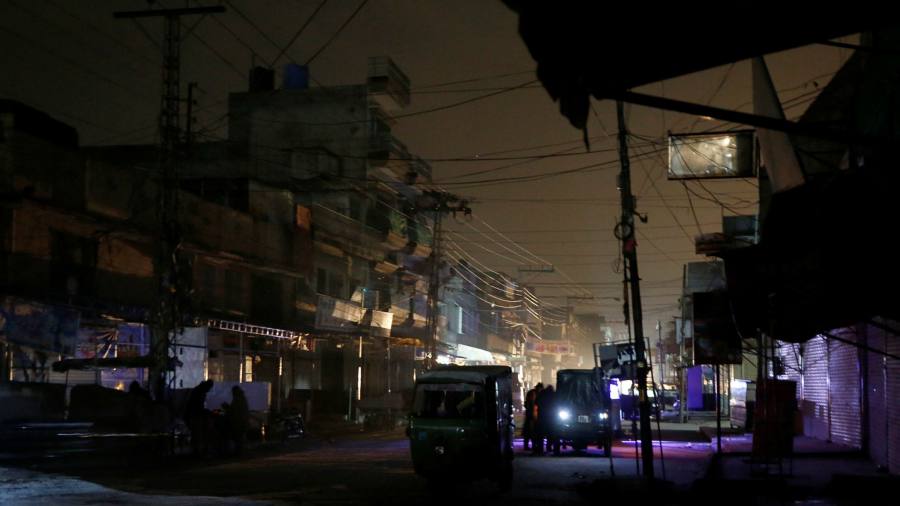[ad_1]
The IMF and Pakistan have announced the resumption of a stalled $6bn loan programme, raising expectations that the south Asian country will return to global bond markets as it struggles to revive its Covid-hit economy.
In a statement on Tuesday, the fund said that a newly agreed package of measures under a three-year loan signed in 2019 sought to “ensure debt sustainability and advance structural reformsâ€.
The agreement had been expected in October last year but was delayed, according to Pakistani officials, mainly over prime minister Imran Khan’s refusal to accept belt tightening measures at the peak of the coronavirus pandemic.
Pakistan received $1.4bn from the IMF in April 2020 to help it respond to the pandemic. The fund said on Tuesday that its support helped the government to enact health containment measures and deliver a temporary fiscal stimulus, a large expansion of the social safety net, monetary policy support and targeted financial initiatives.
The Asian Development Bank (ADB) has said it expects Pakistan’s economy to grow 2 per cent this year after a contraction in 2020.
After Tuesday’s announcement, a senior government official told the Financial Times that Pakistan had already raised the price of domestic energy, one of the conditions agreed with the IMF.
Other measures were likely to include raising more tax revenue in the next July-June financial year, he said.
Muhammad Suhail of Topline Securities, an equities advisory group in Karachi, said the deal had ended a period of uncertainty over relations between Pakistan and the fund.
Pakistan, he said, was now “very likely†to tap into global markets through offering new eurobonds and US dollar denominated Islamic ‘sukuk’ bonds, “with confidence now that the IMF relationship has been restoredâ€.
However, analysts warned, the resumption of the IMF loan still presented Islamabad with a number of domestic economic challenges, together with the management of its foreign debt and liabilities which stood at about US$113bn in 2020 according to Pakistan’s central bank.
“Pakistan will almost certainly require a successor IMF programme when the present one ends in 2022. Foreign debt repayments will remain elevated and inflows from areas like exports will not be able to support the growth momentum,†said Sakib Sherani, an economist and former adviser to the finance ministry.
Business leaders have warned that chronic structural difficulties continue to undermine Pakistan’s potential for growth.
“When you have recently had a power blackout practically across Pakistan, you do wonder how long it will take for Pakistan to tackle its many challenges,†said the head of a Karachi-based investment house with interests in the stock market, automobiles and construction, referring to a massive power cut last month.
However, senior politicians close to Khan said he was now more prepared to face a public backlash over the IMF reforms amid an opposition campaign which may have previously discouraged him from adopting painful new measures.
“In December, many of us believed there was a big threat around the corner. But today, the opposition’s protests have lost steam,†said a minister from Khan’s cabinet. “I think we are now in a better position to face them [the opposition].â€
[ad_2]
Source link





